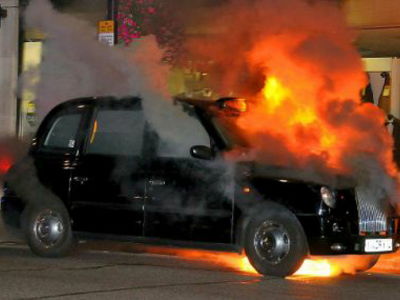Accidents of people dying from carbon monoxide poisoning after staying at Airbnb properties are occurring one after another.

NBC journalist Ben Goggin and others raised the issue in response to a series of incidents in which people who stayed through the private lodging service Airbnb died from carbon monoxide poisoning at their accommodations. Ta.
Airbnb's silent killer: Carbon monoxide linked to 19 deaths in 10 years
According to NBC, at least 19 deaths from carbon monoxide poisoning have occurred in the 10 years since 2013, and a lawsuit alleges that Airbnb is responsible for failing to encourage vacation rental owners to install alarms. It is said that 3 cases have occurred.
It was first reported in 2013 that someone staying at an Airbnb died from carbon monoxide poisoning. Elizabeth Yun Chung, a Korean-Canadian who was in Taipei for a friend's wedding, died of carbon monoxide poisoning. At the facility, the owner had neglected to install an alarm, and the balcony was enclosed, making it impossible to provide adequate ventilation.
In February 2014, Airbnb promised to 'require vacation rental owners to ensure that carbon monoxide detectors are installed' in the wake of the accident, but even in 2023, Airbnb will not be installing carbon monoxide detectors. Installation is not mandatory.

In some countries, the installation of carbon monoxide detectors is required by law, while in others it is left up to the private lodging owner.
To address carbon monoxide concerns, Airbnb began providing one free carbon monoxide detector to each rental property owner in 2014. However, this initiative has not been successful, and as of 2023, it is estimated that only 2.3% of the 7 million facilities will be covered.
In addition, Airbnb is also trying to display whether or not a carbon monoxide detector is available for users, in the same way as 'Kitchen', 'Wi-Fi', and 'TV'. ” is displayed in a private lodging property, and also sends a confirmation email or reminder email to warn users who are planning to stay in a private lodging house that does not have a detector.

Airbnb responded to the series of incidents by saying, ``Accidents at Airbnb are exceptional and rare, and we address concerns when they are reported.''
On the other hand, some of the victims' families said, ``To be honest, seeing that 10 years have passed since the first fatal accident was reported, there are still people dying, I wonder if anything was done about it.'' There is also a view that sufficient measures are not being taken, such as commenting,

According to a 2018 survey conducted by the research group Injury Prevention, even in the United States, only 57.5% of vacation rentals offered by Airbnb have carbon monoxide detectors installed.
Sharon McNab, founder of the National Carbon Monoxide Awareness Association, pointed out that Airbnb had previously taken extensive action regarding COVID-19 and asked, 'Why not do the same for carbon monoxide?' and a proposal. “Carbon monoxide alarms should be mandatory in all hotels and Airbnbs,” he said, recommending people carry portable carbon monoxide detectors for safety while Airbnb is unavailable.
Related Posts:
in Posted by log1p_kr







